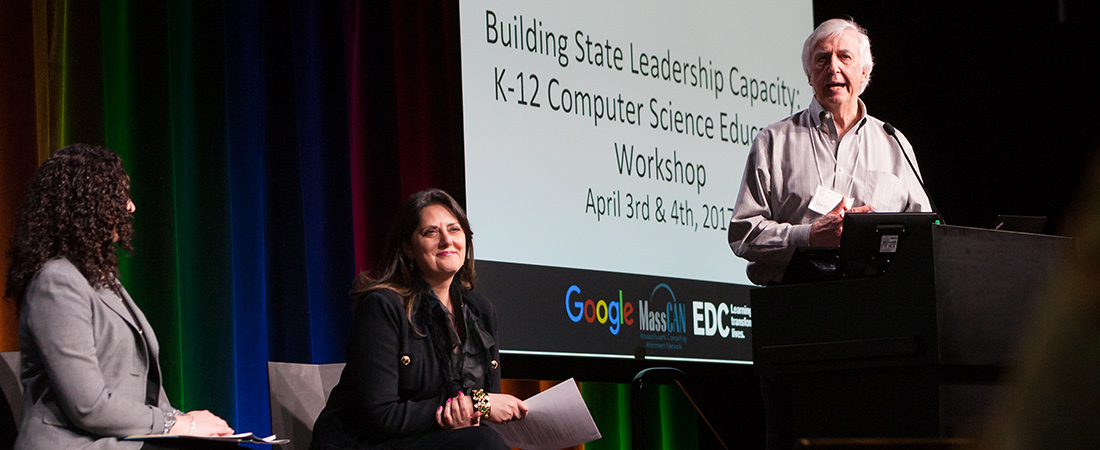Advocates Aim to Make CS Education Available to All

Kathleen Einhorn has a vision for what computer science education could look like in Utah. It involves ensuring students of all ages—from grade school students to graduating seniors—have opportunities to build their programming and computational thinking skills, whether or not they ever plan on working for a hip tech firm.
It’s already happening in Park City, where Einhorn is the associate superintendent of teaching, learning, and technology. But in many of Utah’s more rural communities, computer science has yet to take root. Some districts lack the technology tools; others lack teachers who have a background in computer science.
And that concerns Einhorn. She believes that access to a high-quality computer science education should be as fundamental as learning how to read, write, and do arithmetic.
“I want us to use technology tools and computer science to engage students and to raise a generation who can think and problem solve,” she says. “You can’t wait until kids are in middle school or high school to get them interested in this subject.”
Einhorn and over 100 like-minded educators, administrators, and computer science advocates from 10 states were recently in Boston to take part in an intensive strategy session on state-based efforts to scale up computer science education across the country. During the two-day meeting, which was hosted by the Massachusetts Computing Attainment Network (MassCAN) at EDC and held at Google’s campus in Cambridge, Mass., attendees shared strategic accomplishments, consulted newly released research, and built state plans that addressed four critical areas in broadening access to computer science: state elected leader engagement, business engagement, coalition development, and equity.
Participants also heard representatives from industry leaders such as Microsoft and Raytheon talk about the critical need for continued investment in computer science.
Michael Carter, co-head, Technology Investment Banking Group at RBC Capital Markets, said that computer science and computational thinking skills are in great demand in the finance industry, where markets are increasingly complex.
“It’s a future in a lot of industries,” he said. “It’s not just about being a coder.”
Support for state-based efforts
Most parents, teachers, and school principals now believe that computer science is as important as core subjects such as mathematics, English, and history. But, notes MassCAN Director Jim Stanton, opportunities to take computer science are still lacking in many K–12 classrooms, especially in urban and rural schools.
As a result, too many students—especially girls and students of color—are being denied a high-quality education in computer science at a time when interest in the subject is booming. However, states can broaden participation in computer science by funding more course offerings and creating teacher licensure programs, says Stanton.
“What we are learning is that there are really only a handful of ways that states can successfully scale up these programs,” says Stanton. “We are trying to identify those models and help more states figure out what they need to do to move more quickly.”
A survey of state efforts also reveals inconsistencies. Seven states have approved formal academic standards for computer science. Twenty-eight states offer certification for computer science teachers, but the rigor and quality of these credentials vary widely. And only four states require that computer science be offered in high school.
Steve Vinter, executive coach at Google Cambridge and executive committee chair and co-founder of MassCAN, agrees that state-level efforts are critical in boosting computer science.
“Education is a state activity from a funding and standards standpoint,” Vinter says. “A lot of work has been done at the national level to invest in research, guidelines, public awareness. But really, it’s the states that need to work with school districts to make it happen.”
But states should not be expected to work alone, he says. The tech industry should be a participatory partner, with companies like Google helping to shape and support statewide computer science efforts.
“Such partnerships makes learning more relevant and connects those students to employers far beyond what the classroom is able to do,” he says.